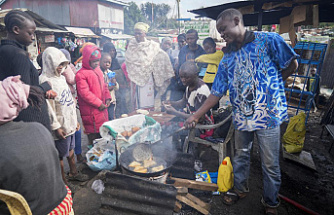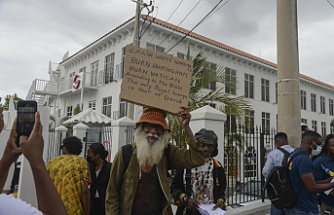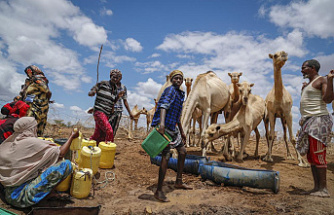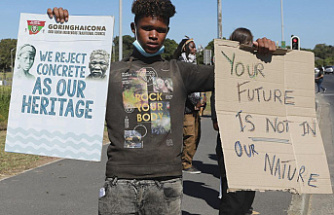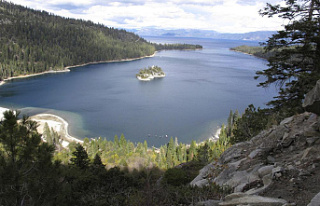This was just a day after the military took power in a quick coup widely condemned by the international community.
After weeks of growing tensions between civilian and military leaders about the direction and pace of Sudan's democratic transition, the takeover was completed. It threatened to stop the process, which has been moving slowly since Omar al-Bashir was overthrown in a popular revolt two years ago.
Later in the day, the United Nations Security Council would discuss the situation in closed-door meetings.
The coup was condemned by the U.N. and western governments. They also called for the release Abdalla Hamdok, Prime Minister, and other high-ranking officials who were detained Monday. The administration of U.S. President Joe Biden announced that $700 million in emergency aid to Sudan was suspended. Sudan is a nation in Africa connected by language and culture with the Arab world.
Mariam al-Mahdi was the foreign minister of the government that was dissolved by the military. She declared that she and other Hamdok members remained the legitimate authorities in Sudan.
"We remain in our positions. She told The Associated Press by phone that she rejected such a coup and such unconstitutional actions. "We will continue our peaceful disobedience, and resistance."
After Hamdok was detained by the military, protestors from Sudan flooded the streets in Khartoum and other cities. According to the Sudan Doctors’ Committee, at least four people were killed in clashes with security forces and more than 80 were injured.
The world and the country are now awaiting to see if violence will continue in the nation that saw a brutal crackdown on protestors for pro-democracy in 2019. On Tuesday morning, some protesters were still in Khartoum and Omdurman's twin cities. Many roads were blocked. The resistance to military rule will be tested more strongly Saturday, when protesters plan to hold a mass march demanding civilian rule.
Overnight, troops from the military and the fearsome Rapid Support Forces swept Khartoum's neighborhoods, chasing protesters. Human Rights Watch, an international group, said that forces used live ammunition against protesters.
Antony Blinken, U.S. Secretary-of-State, called for an immediate halt in violence against protesters as well as the restoration of internet service. He stated that the U.S. is working with partners to create a common diplomatic approach to these actions to avoid them leading to instability in Sudan and other parts of the region.
Gen. Abdel-Fattah Burhan was the top military officer in Sudan and dissolved the Hamdok government. The Sovereign Council is a military-civil body that was established shortly after al-Bashir's ouster. He is now the head of a military council, which he claimed would govern Sudan until elections in 2023.
Burhan claimed that the military tookover was due to quarrels between political factions. The coup occurs less than a month after Burhan was due to hand over the Sovereign Council's leadership to a civilian. This would have reduced the military's power. He has indicated repeatedly that he may not follow through with this in recent weeks.
General said that he is committed to holding elections on time. There could be a lot of things in the next 19 months and it isn't clear if the military would be open to letting go of its decades-old grip.
Hamdok and other members of the transitional government remain in detention at a Khartoum military camp. Al-Mahdi spoke with Khalid Omar, Minister of Cabinet Affairs, to discuss his detention and stated that he was treated badly and humiliated during his arrest.
She said, "They (military force) took Khalid naked wearing only his nightclothes,"
The Sudanese Professionals’ Association, a union group that was behind the revolt against al-Bashir's regime, encouraged people to strike and take part in civil disobedience. Separately, Sudan Popular Liberation Movement North, the main rebel group in the country, condemned the coup and called on people to go to the streets.


